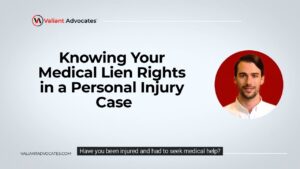Have you been injured and had to seek medical help? Are you worried about the cost of your medical bills related to your injury? If so, you may have rights through a medical lien. A medical lien is a device used by healthcare providers to ensure that they will be paid for their services if an injured person successfully recovers money from a third-party. In other words, it’s an arrangement that ensures that if you receive money from a personal injury case, the healthcare provider will get paid first. Let’s explore more about this topic in detail.
What is a Medical Lien?
A medical lien is an agreement between an injured party and a healthcare provider. Under this agreement, the healthcare provider agrees not to bill the patient until after any settlement or judgment from the personal injury case has been finalized. The purpose of this is to ensure that the healthcare provider gets paid first before any other expenses are taken out of the settlement or judgment amount. In return for this agreement, the injured party agrees to pay back the healthcare provider for their services once they have received their settlement or judgment amount.
How Does It Work?
The process of getting a medical lien can vary depending on who is providing your care. Generally speaking, however, when an injured person seeks treatment from a healthcare provider such as doctor or hospital they will need to sign an agreement stating that they understand their rights and responsibilities under the medical lien arrangement. This agreement should include information regarding how much money needs to be repaid and when it needs to be paid by (usually within 30 days). Once signed, both parties must adhere to its terms in order for it to be valid.
What are My Rights as an Injured Party?
It’s important for injured parties to understand their rights under any medical lien arrangement they enter into with their healthcare provider. Generally speaking, these rights include things like being able to negotiate repayment terms (e.g., lower interest rate) and being able to challenge any additional charges made by the healthcare provider after treatment has been provided (e.g., additional fees). Additionally, if there are any disputes over payment amounts or repayment terms then either party may seek legal counsel in order resolve them outside of court proceedings.
Final Thoughts
As an injured person, it’s important for you to know your rights before signing any agreements with your health care providers so that you can make sure you’re getting what you deserve out of any settlement or judgment amount awarded by courts of law in regards to your case! If you’re still unsure about anything related to medical liens or personal injury cases in general then please consider consulting with an experienced attorney who specializes in these matters today!


